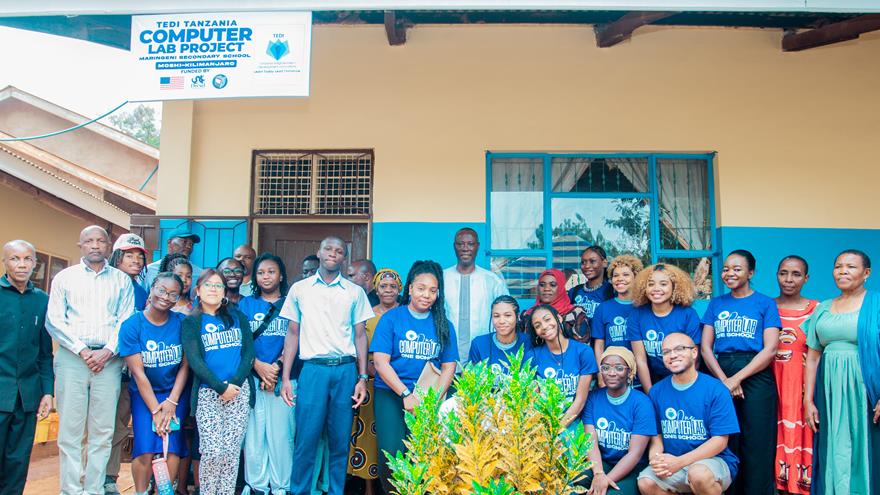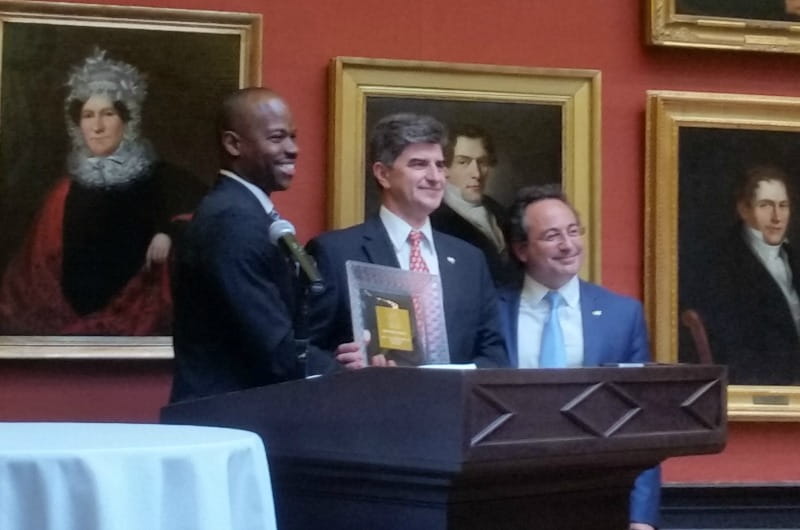Nanomaterials Researcher Yury Gogotsi Receives $2.2M Endowed Professorship
 By Ben Seal
By Ben Seal

- Through Connections and Community, Drexel Course Helps Launch Computer Lab in Tanzania
- Drexel's Self-Heating Concrete Is One Step Closer to Clearing Sidewalks Without Shoveling or Salting
- Splunk Founder Michael Baum ’85 Shares Personal Philosophies, Entrepreneurial Advice and the Impact of His Drexel Co-ops
- Pinging Pipes Could Help to Identify Lead Water Lines Without Excavation

Yury Gogotsi, PhD, whose materials science research as founder and director of the A.J. Drexel Nanomaterials Institute has opened up new possibilities for the applications of nanomaterials, was installed May 1 as the inaugural Charles T. and Ruth M. Bach Professor at Drexel University. The professorship was established with a permanent endowment of $2.2 million that will be used to fund Gogotsi’s current and future research initiatives.
“This is a great honor, because for professors this is the highest distinction a university can provide,” Gogotsi, who was installed at an event in the A.J. Drexel Picture Gallery, said in an interview.
Charles Bach, who died in 1955, had a 55-year association with the Drexel Family Office, served as secretary of the Drexel Institute’s Board of Trustees from 1925 until 1952 and was a member of the board from 1952 until his death. The funds for the professorship come from his and his wife’s estates.
For Gogotsi, the funding is an opportunity to push the boundaries of what can be done with MXenes, the new family of two-dimensional materials discovered and developed in Drexel’s labs, as well as other new nanomaterials that his group is developing for energy water and health applications. A flexible allotment of money will allow him to hire doctoral and postdoctoral students and to buy new instruments when the need arises. More than anything, it will fuel his pursuit of new ideas.
“This endowment allows us to explore some risky ideas — to do something that is high-risk, high-return,” said Gogotsi. “This is always very important in science because unless we take risks, we have little ability to really breakthrough.”
Since he arrived at Drexel in 2000 as a professor of materials science in the College of Engineering, breakthroughs have been the norm for Gogotsi. Research on nanodiamond, graphene and MXenes presents “game-changing” possibilities for energy storage, optical data transmission and electronic applications, among other potential uses, he said.
“Discoveries happen almost every week — we find new properties and new materials,” said Gogotsi.
But much of it cannot be accomplished without money to hire the best and brightest researchers, he said. Now, Gogotsi has a windfall of resources to complement his bounty of ideas.
“I can find the best person available,” said Gogotsi. “I can bring top people in as they emerge, when the opportunity exists, then switch them to projects later when I’ve secured external funding.”
In time, the endowment should lead to additional funding, he said, because the Nanomaterials Institute will be able to check new ideas before pursuing government grants from agencies such as the National Science Foundation. The endowment will allow Gogotsi and his colleagues to conduct preliminary research as they explore new areas of study, then use those findings to connect to larger funding sources and build the government and industry relationships necessary take the next big step. And if it all comes together as he envisions, the University will benefit far beyond Gogotsi himself.
“This will help Drexel bring in more high-profile scientists and help scientists who are already at Drexel to realize their ideas,” said Gogotsi.
In This Article
Drexel News is produced by
University Marketing and Communications.